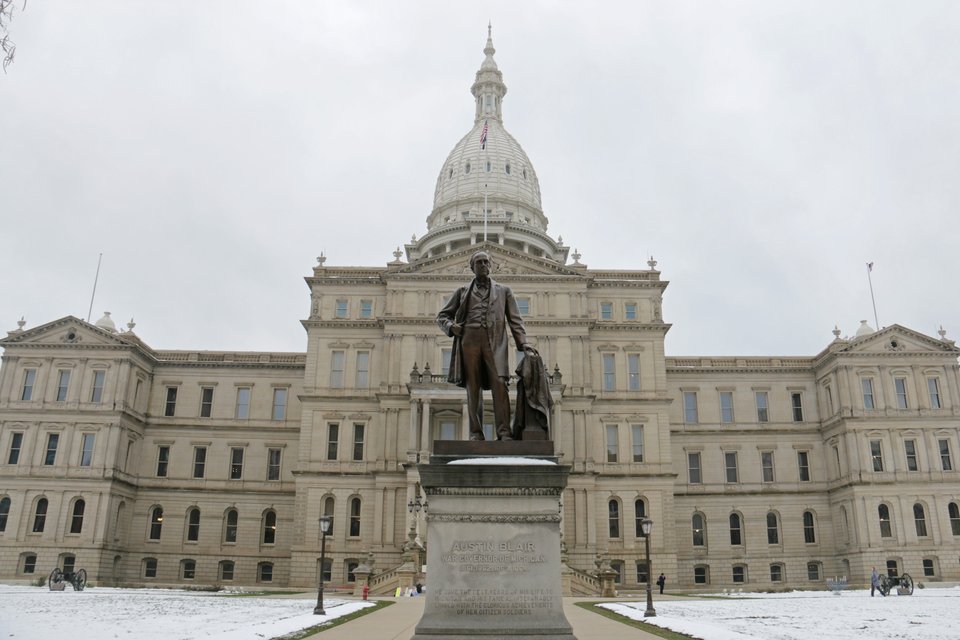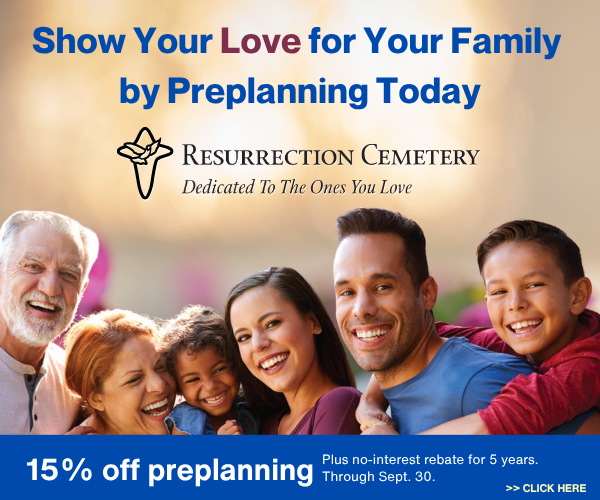Archbishop meets with Jewish community leaders at The Zekelman Holocaust Center to honor victims, further interfaith dialogue
FARMINGTON HILLS — Archbishop Edward J. Weisenburger led a Catholic contingent on a tour of The Zekelman Holocaust Center in Farmington Hills on Aug. 18, part of the ongoing ecumenical relationship between the Church and local Jewish community.
The archbishop, who has visited and toured the Holocaust Museum in Washington, D.C., and in Israel, as well as Anne Frank’s House in Amsterdam and Gaza’s lone Catholic parish, said the visit was a chance to reflect on the atrocities of the Holocaust and build communion between the people of the two faiths.
Don't miss another story
Did you know you can get Detroit Catholic's latest daily or weekly articles delivered to your inbox? It's easy and free to sign up.
“I have some history there which is very dear to my heart,” Archbishop Weisenburger said. “I would say we always need to be careful about making judgments and being critical. Any semblance of racism must be rooted out of our lives, because it can so easily morph into the kind of violence that exploded for 6 million Jews and millions of others.”
The tour began with an introduction from Rabbi Eli Mayerfeld, CEO of The Zekelman Holocaust Center, who said more than 100,000 people a year come to the exhibit, including many from Catholic schools and parishes.
“As Michigan’s only Holocaust museum, the center was founded in 1984 by a group of local survivors of the Shoah, the Holocaust,” Rabbi Mayerfeld said. “These fiercely determined individuals were intent on establishing a lasting memorial in our community to honor those who were murdered during the Holocaust and to create a space to share their experiences and educate the public.”
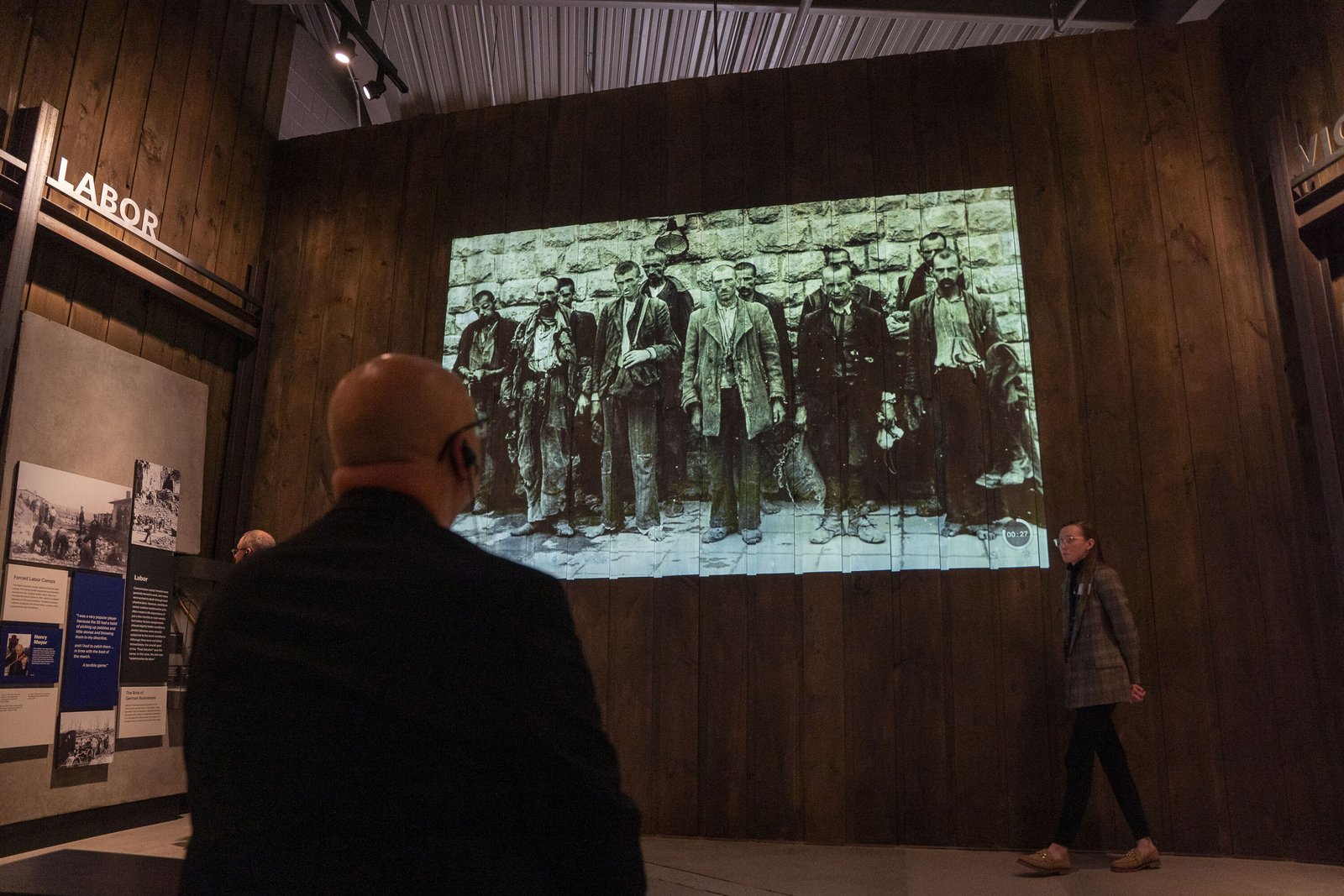
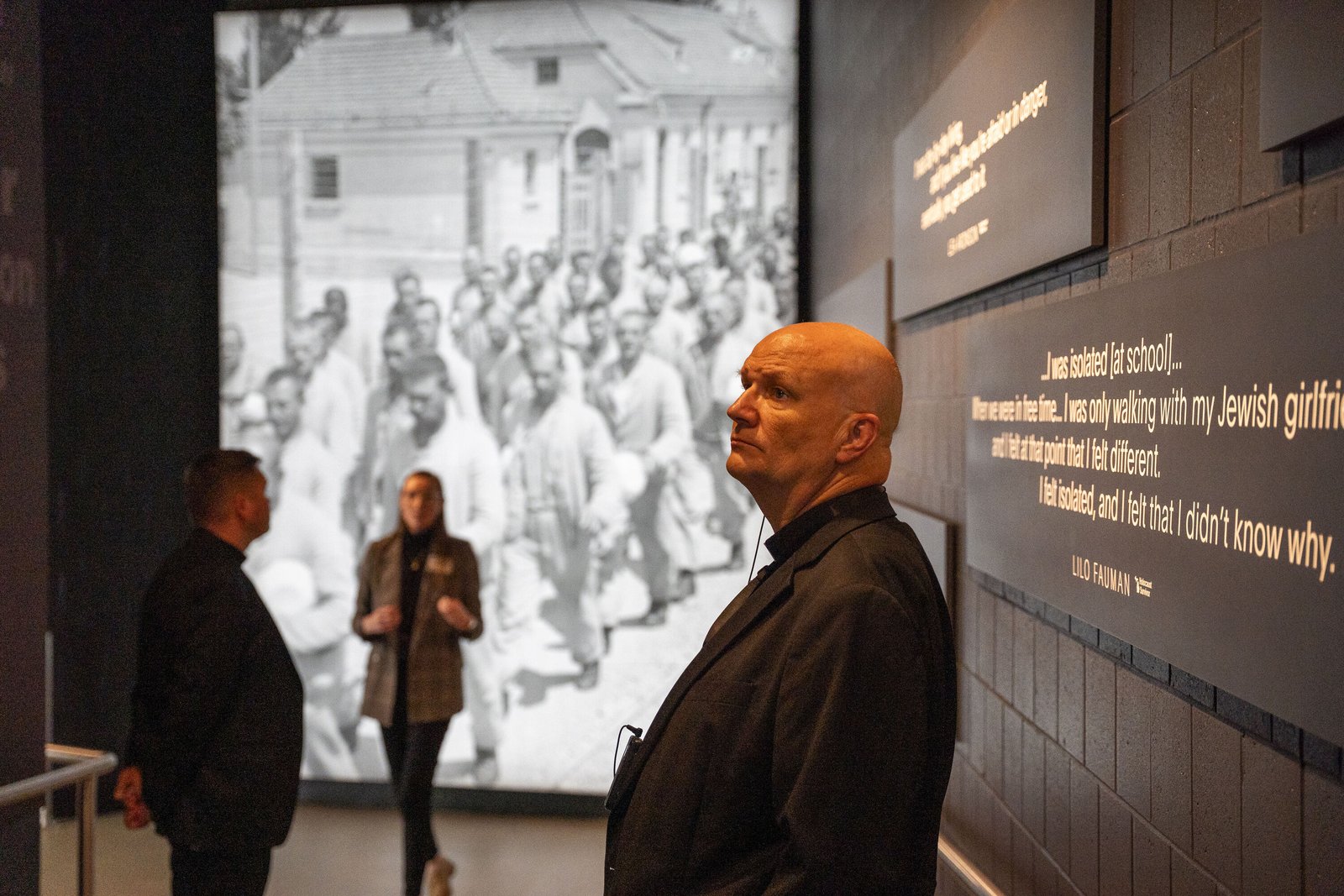
The museum now has the critical role of reminding the world of the atrocities of the Holocaust and the scourge of antisemitism, and how the crimes and horrors of the 1930s and '40s still reverberate in society today.
The tour not only detailed the crimes against humanity perpetrated by the Nazis, but also the stories of resistance, faith, hope and survival of the Jewish victims of the Holocaust and other victims of Nazi Germany’s tyranny.
The tour began at a wall showing the number of people killed during the Holocaust — 6,258,484 — and the countries where they were killed.
“It’s not that 6 million people were killed; it was one person who was killed six million times,” said Jamie Miskowski, education manager at The Zekelman Holocaust Center and a parishioner at Our Lady of Good Counsel Parish in Plymouth.
The exhibit featured heroic Catholics who put their lives on the line to save thousands from the death camps and killing fields, but also detailed moments when the Church failed to live up to its prophetic mission in being a living witness to the Gospel of Jesus Christ.
“On your tour, you will learn about the long history of antisemitism that led to the Holocaust,” Rabbi Mayerfeld said. “This is not an easy history to confront. It requires a humble and courageous reckoning with the religious origins of antisemitism as it was promoted by historic church leaders. Long before the Holocaust, religious antisemitism divided Jews and Christians, and normalized the demonization and disenfranchisement of Jews.”
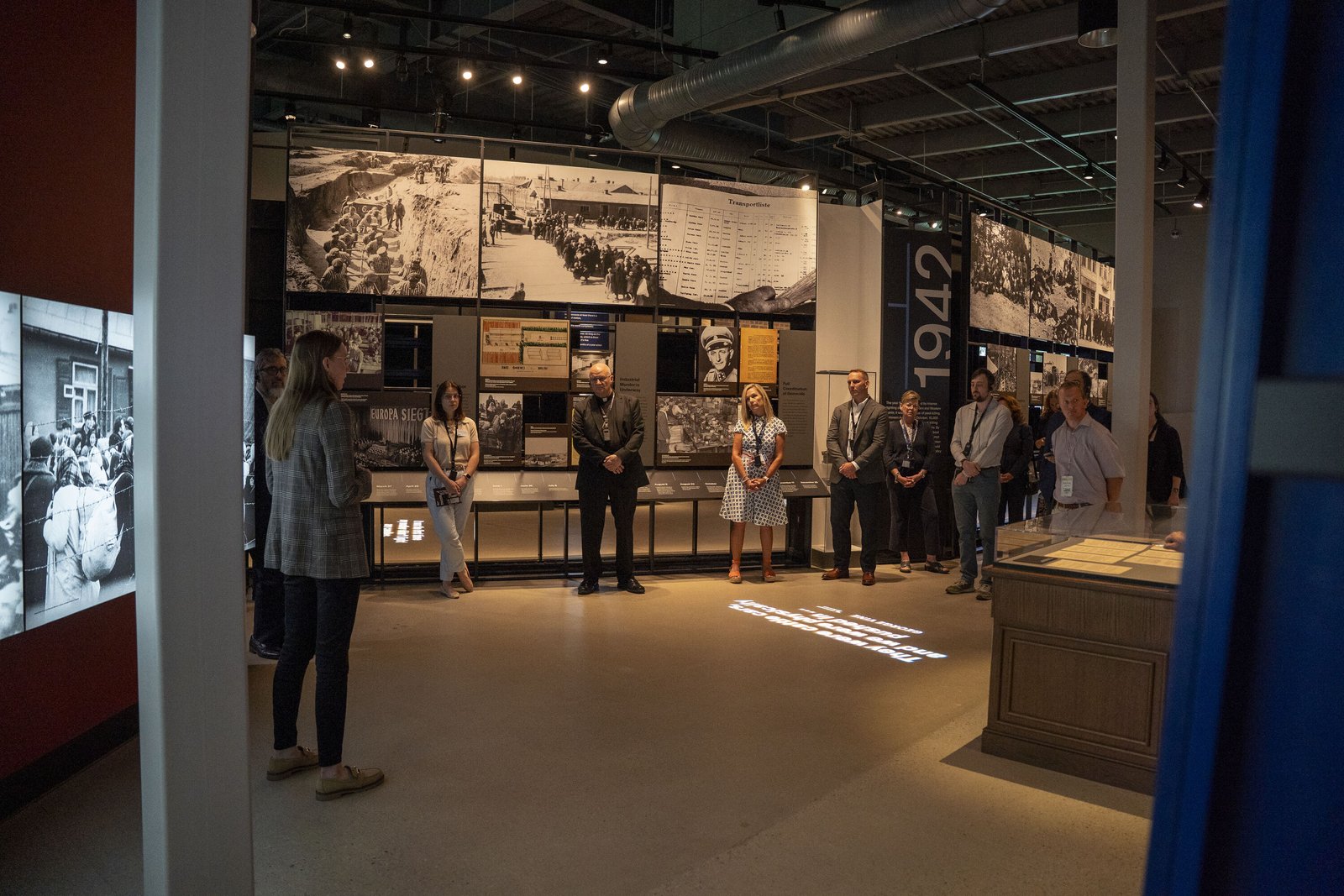
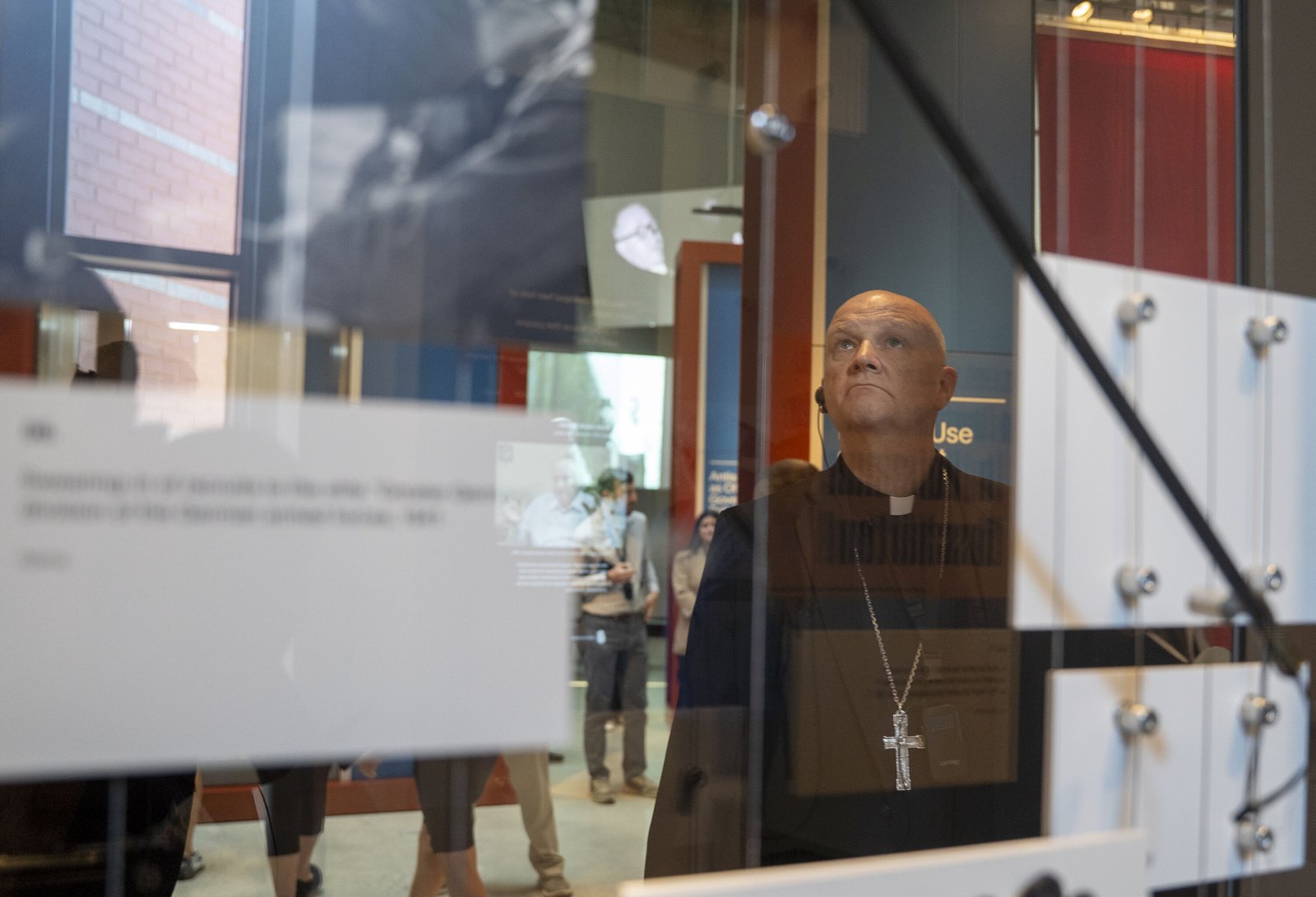
The exhibit showcased the Nazis' rise to power, built on historical prejudice against Jews, and, in some cases, drew on Church leaders' complicity or even encouragement of the Nazi regime during its suppression of the Jewish people.
“During the Holocaust, ordinary Germans and collaborators — including many professed Catholics — supported the Nazi Party and its antisemitic policies,” Rabbi Mayerfeld said. “The Catholic Church’s tragic failure to oppose Nazi atrocities against the Jews at this time made the heroic choices of individual Catholics to hide or save their Jewish neighbors, the exception to the rule.
“By reflecting critically and honestly on this history, we grapple with the power of each individual's choice to promote good or evil, and the consequences of those choices for real people’s lives,” Rabbi Mayerfeld added.
As leader of the Catholic Church in southeast Michigan, Archbishop Weisenburger said it can be difficult to analyze a time period when some ecclesiastical leaders failed to speak the truth and defend life.
But there are figures, such as Bishop Clemens August Graf von Galen of Munster, who did use their platform to defend the innocent. It just so happens that Archbishop Weisenburger knows the archbishop’s nephew, Count Ferdinand von Galen, who lives in Arizona.
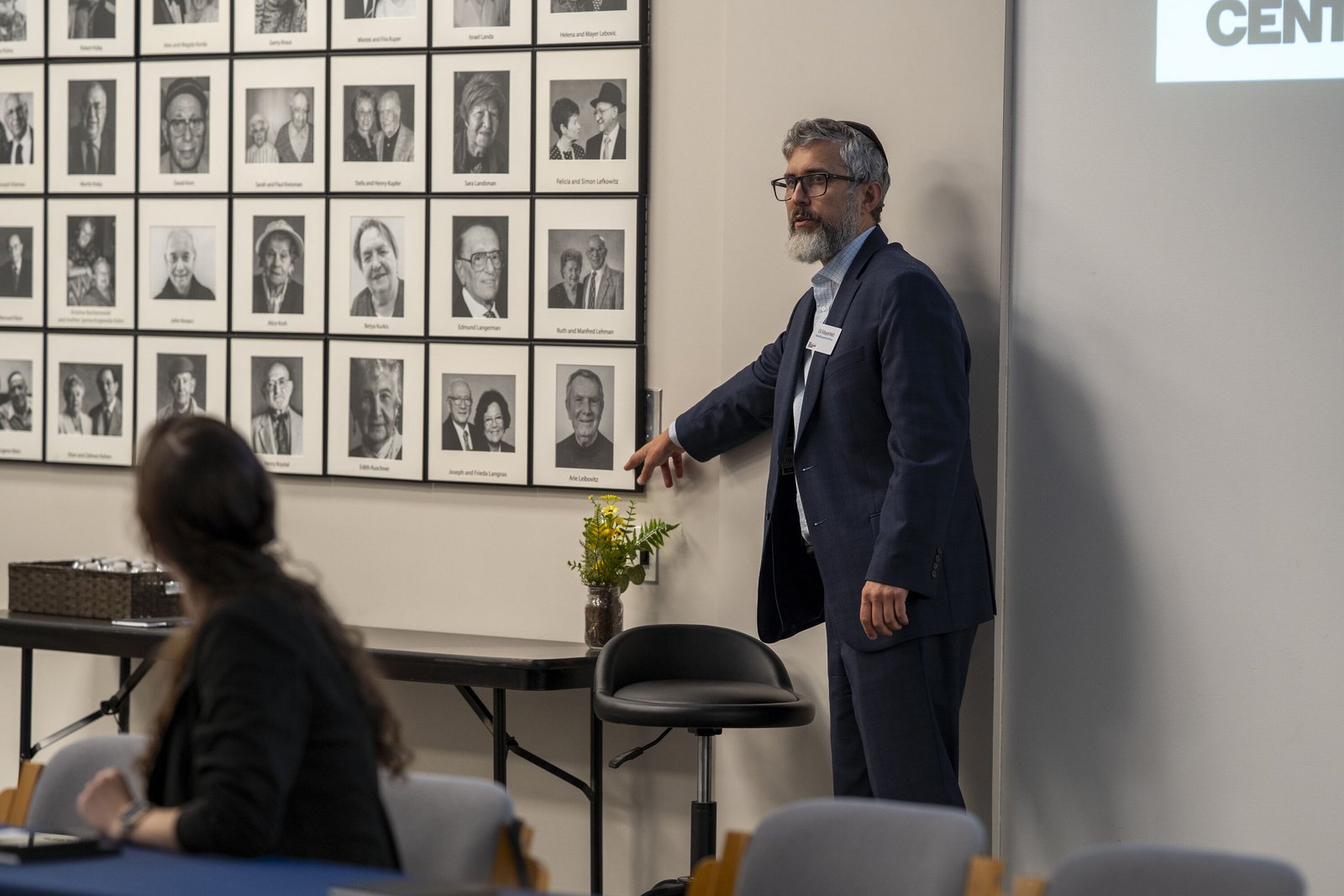
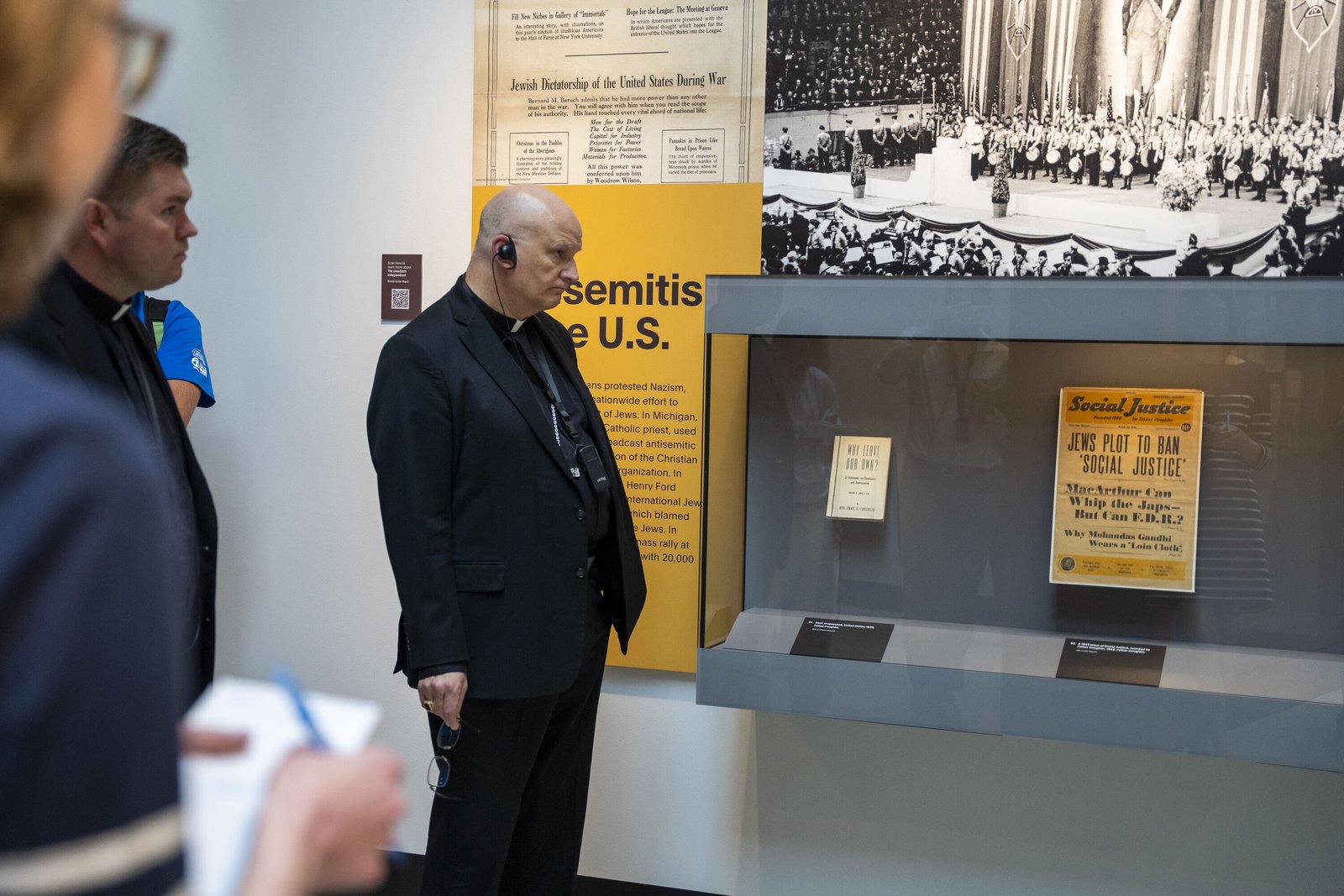
“I would like to think those that allow themselves to be truly grasped by the Gospel message were not falling into grave sin,” Archbishop Weisenburger said. “However, perhaps many did. What we’ve always taught in Catholicism — and I can only speak to my religion — but ours is a religion of both sinners and saints. And so when we fail, we always try to face the truth, and then in facing the truth, we pick ourselves up and we try to go on and make a difference in the world in love.”
Miskowski said in her role as education manager, there are times when it can be difficult to discuss the moral failures of people of professed faith, but added it’s also inspiring to see people keep their faith under some of the worst conditions imaginable.
“This space creates a unique opportunity for people to ask some of the deeper questions in life — about the existence of God, the meaning of suffering and their own human experiences of how to live a moral life and treat others with justice and beneficence,” Miskowski told Detroit Catholic.
The Holocaust memorial's mission is all the more critical during times of increased violence around the world, when peace is being shattered by war, oppression and suffering, Rabbi Mayerfeld said.
This is especially true against the backdrop of the ongoing war in Gaza, in which thousands of Gazans have been killed, mass starvation threatens hundreds of thousands more, and Israeli hostages remain in captivity, Archbishop Weisenburger added.
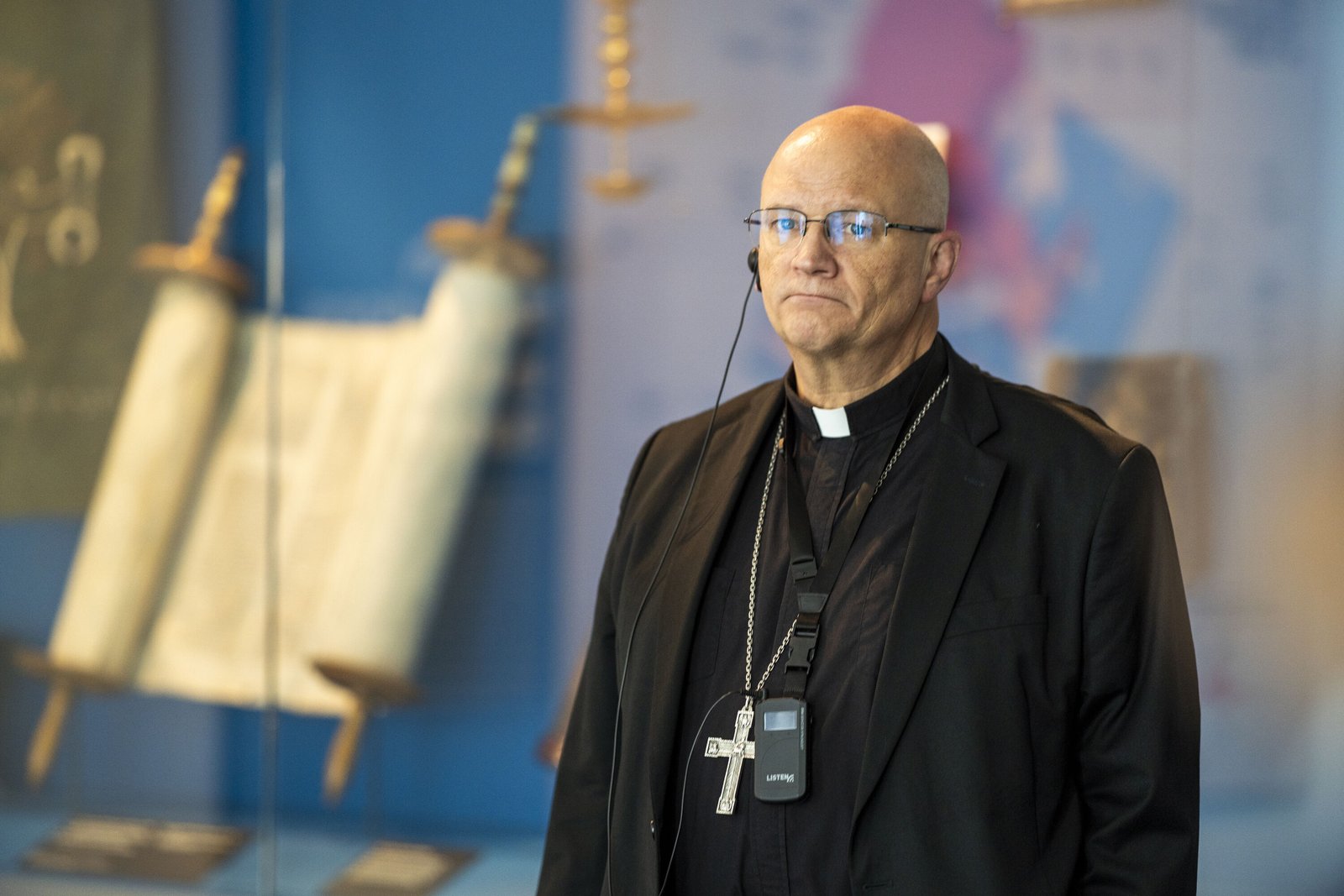
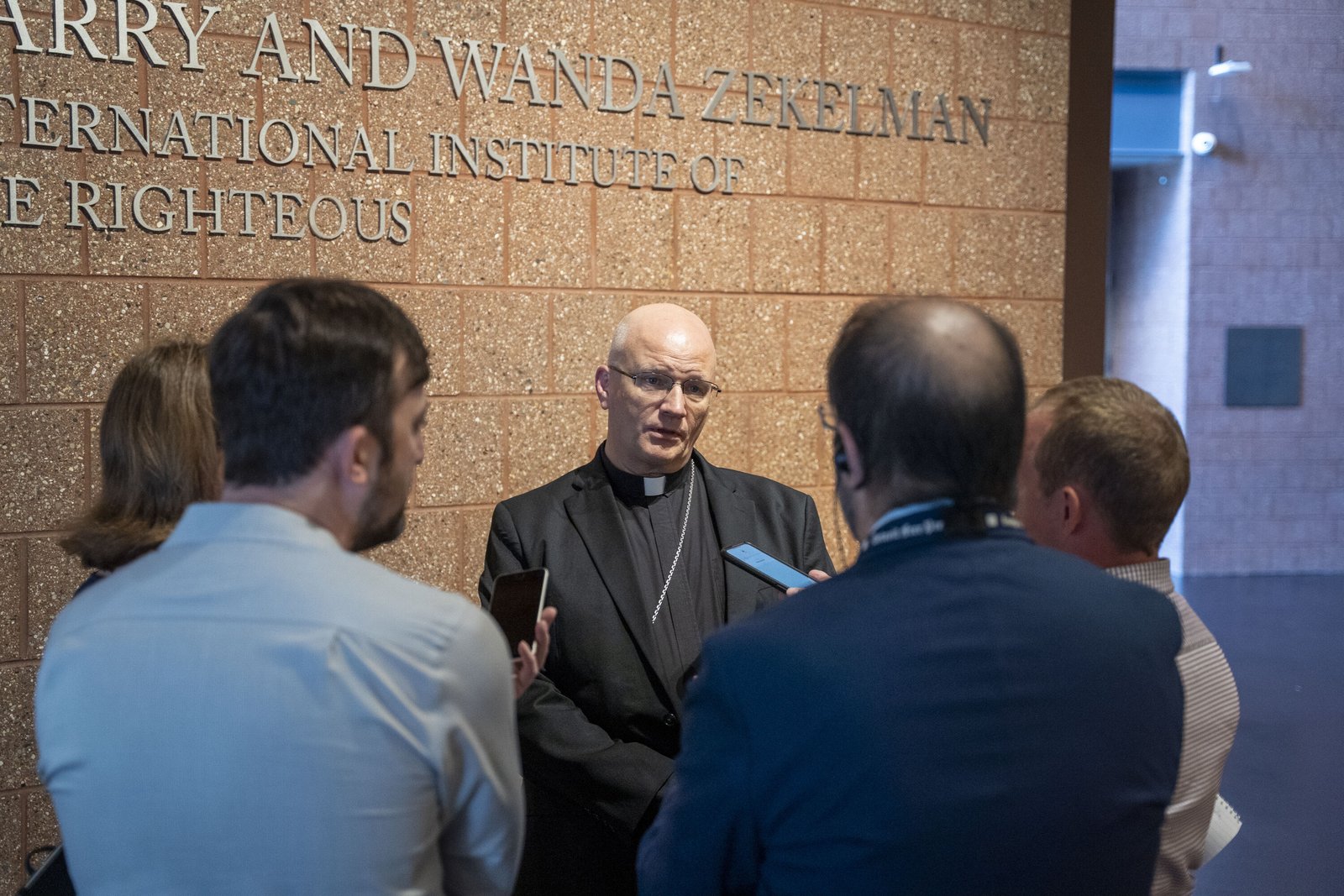
“I’m deeply, deeply troubled by what’s happening in Gaza, and I feel that it would be a betrayal of everything that this magnificent museum stands for if we were to ignore the suffering, the pain, the unjust slaughter of tens of thousands of people,” Archbishop Weisenburger said.
An emergency special collection is being taken up in parishes across the Archdiocese of Detroit this weekend, Aug. 23-24, to raise money to support humanitarian and food relief efforts in Gaza.
Following the tour, Archbishop Weisenburger met with leaders of Metro Detroit's Catholic and Jewish communities, including the Jewish Federation of Detroit, for an interfaith roundtable discussion focused on building ongoing partnerships and opportunities for education.
Cases of racial and religious tension, incidents of mass violence around the world, and the dwindling number of people with living memory of the Holocaust's horrors mean it's all the more important for younger generations to study the past, learn from it, and give voice to those facing hatred, Miskowski added.
The Zekelman Holocaust Center frequently works with the children and grandchildren of Holocaust survivors "to tell their stories and keep those stories alive for the next generation," Miskowski said.
“People can’t walk through these exhibits without hearing that personal history, without getting a sense of that firsthand witness,” Miskowski said. “It remains a deeply personal experience that people can have to connect their education to the world we live in today.”
Copy Permalink
Ecumenism and interfaith Social justice




